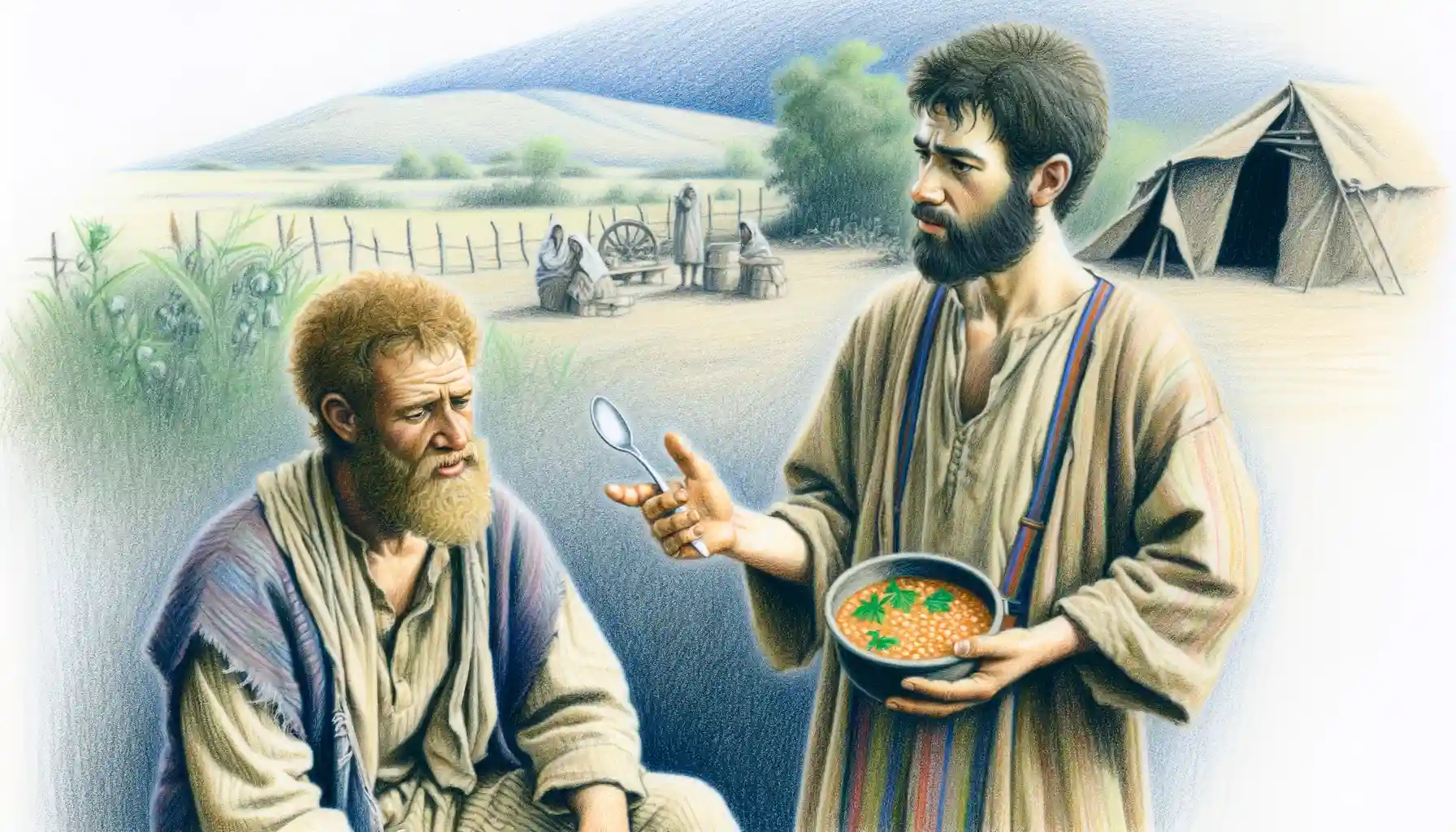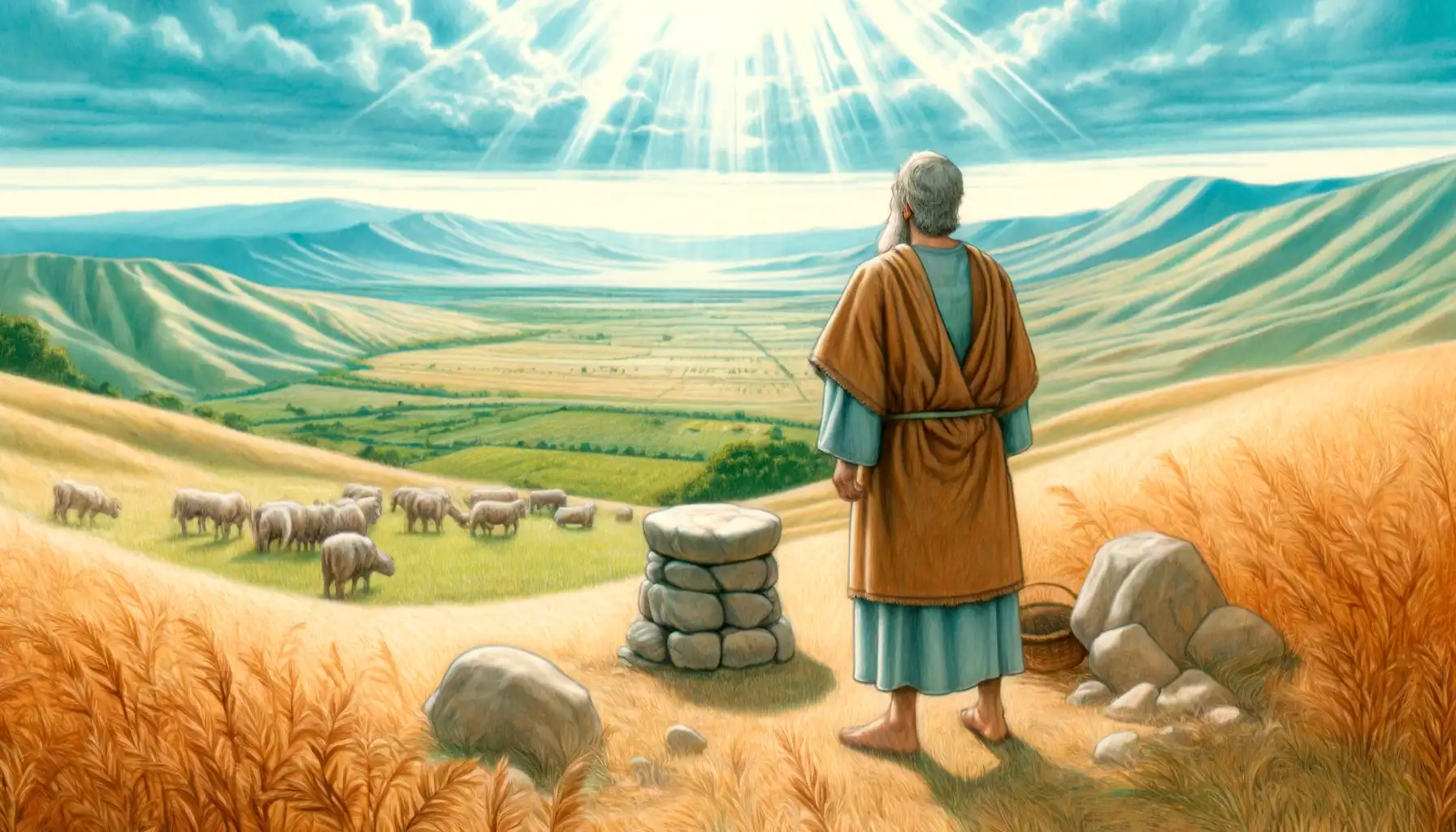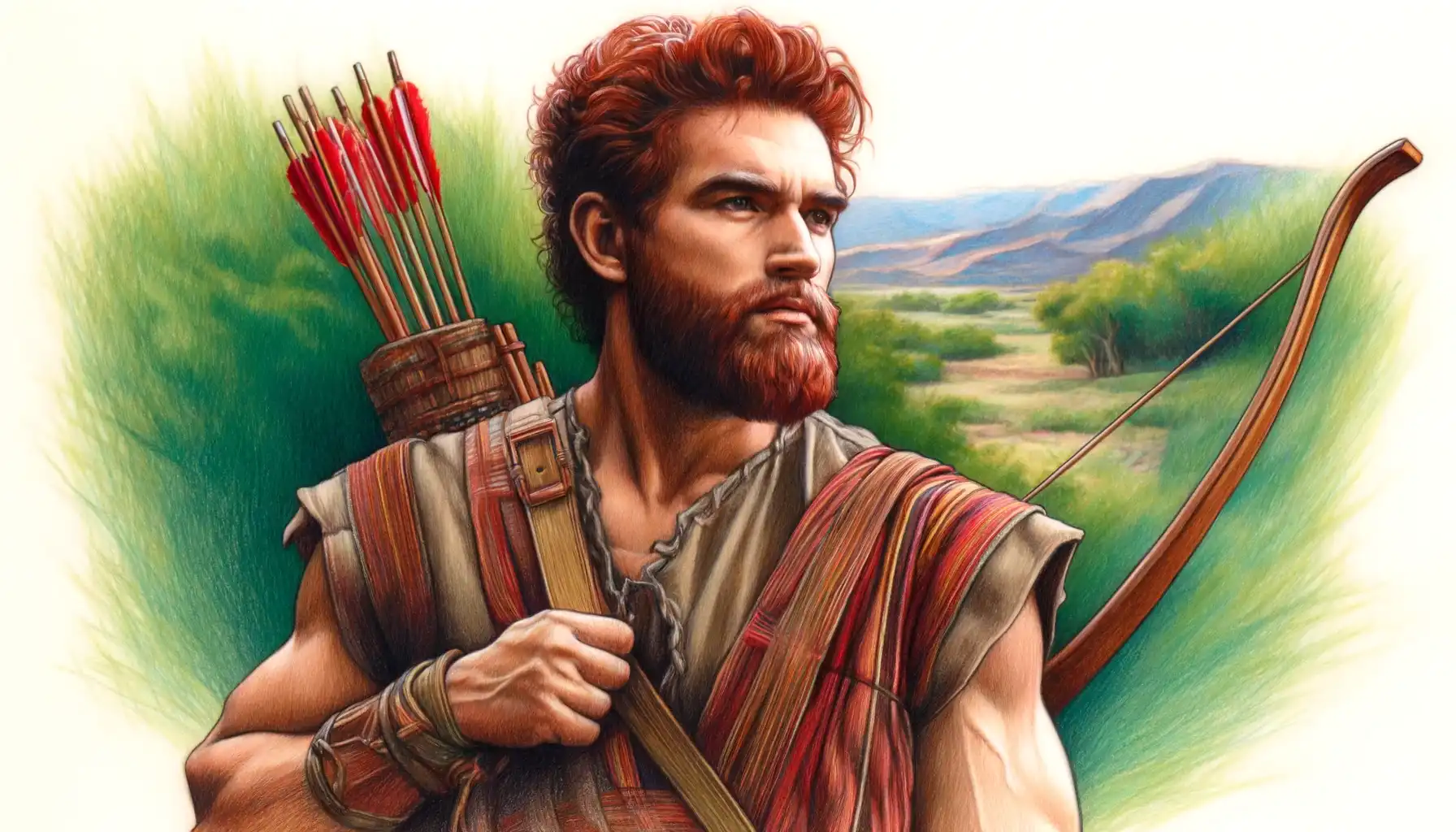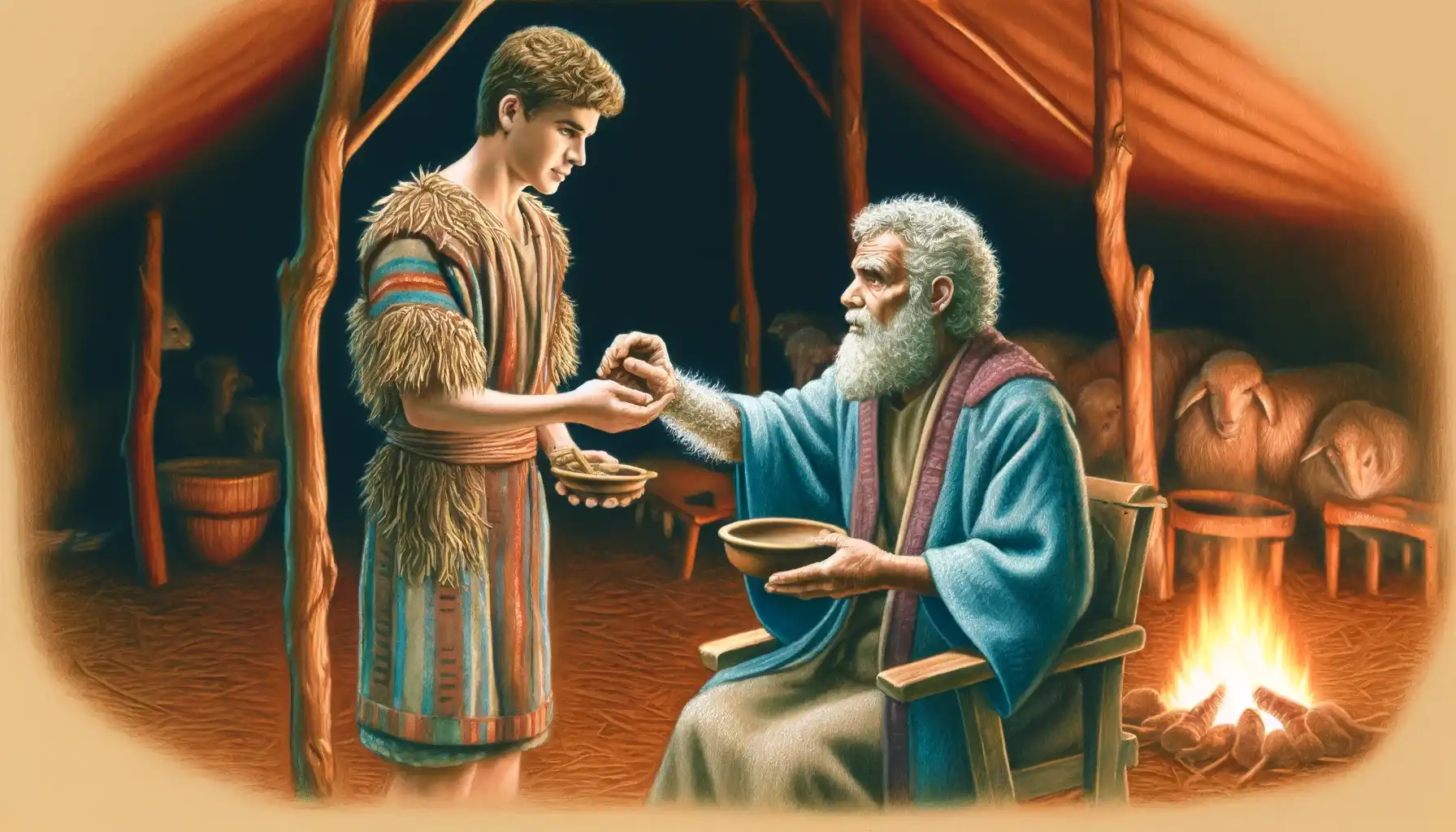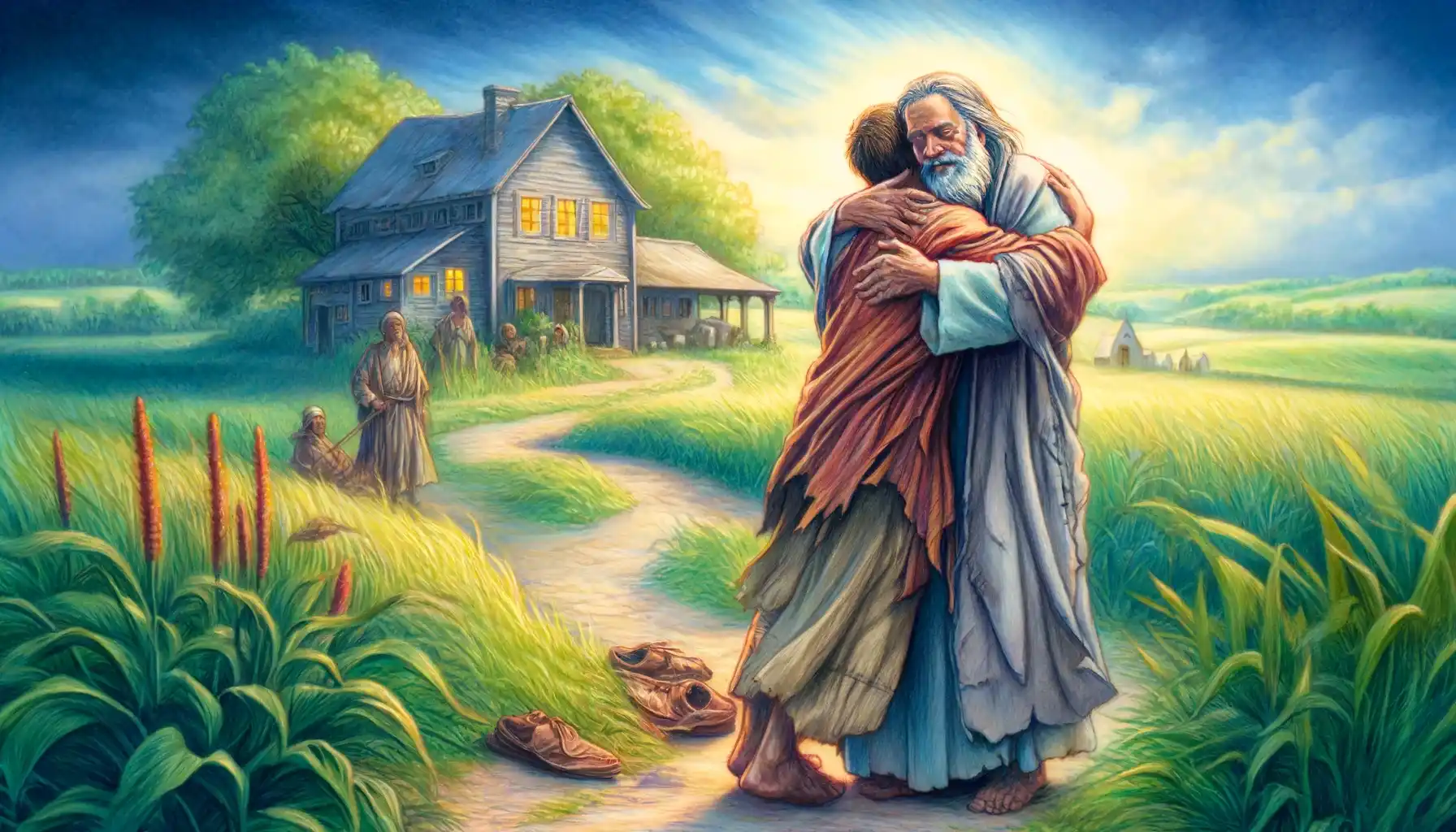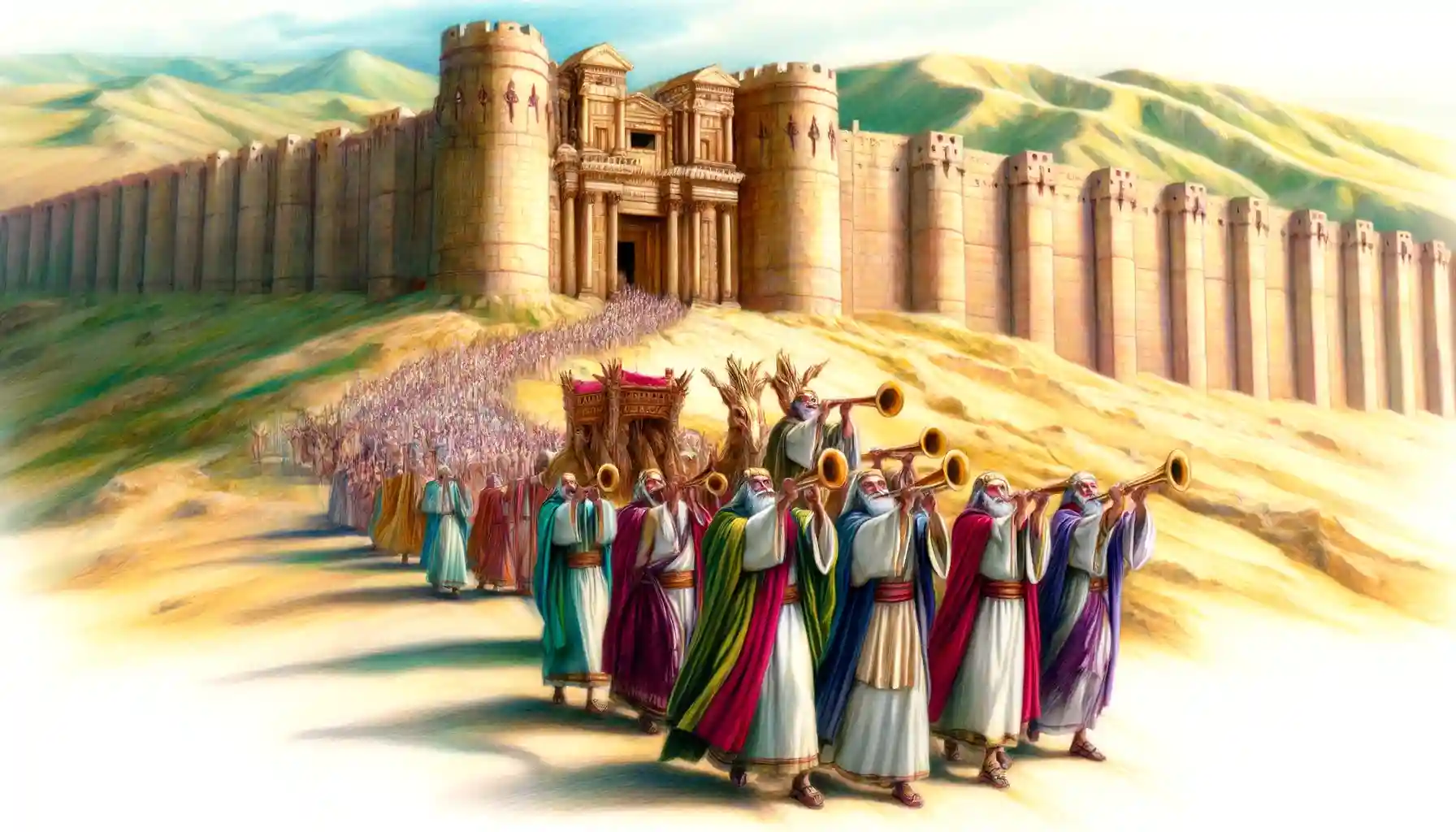Esau sold his birthright to his younger brother Jacob for a meal, a decision that demonstrated his disregard for his heritage and had lasting consequences on the lineage and destiny of the Israelites.
In Genesis 13:14-18, God reaffirms His promise to Abram, guaranteeing him and his descendants the land of Canaan, a pivotal moment in the establishment of the covenant relationship between God and Abram.
Esau’s life story is a complex narrative of impulse, loss, and eventual reconciliation. It highlights themes of family, conflict, and redemption, providing deep insights into the consequences of choices and the power of forgiveness.
Jacob deceived Isaac by pretending to be his brother Esau. He wore Esau’s clothes and placed goatskins on his arms and neck to mimic Esau’s hairy skin. With the help of his mother, Rebekah, Jacob brought Isaac food, seeking his blessing. Isaac, who was old and blind, was tricked into giving Jacob the blessing meant for Esau.
The Parable of the Prodigal Son not only teaches about forgiveness but also offers a mirror to every individual’s spiritual journey, encouraging a heartfelt examination of one’s own life and actions in the light of God’s infinite mercy and love.
The Book of Joshua provides a narrative transition from the nomadic wanderings of the Israelites to their establishment as a settled community in a promised land, driven by divine guidance and covenantal fidelity.

